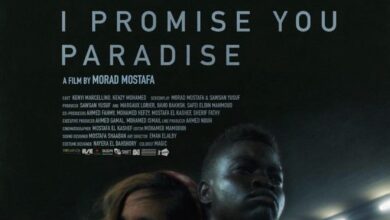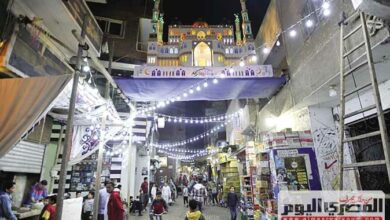This year’s Arab Film Competition for long feature films, held as part of the 33rd Cairo International Film Festival, included ten films: Journey to Algiers (Algeria), Heliopolis (Egypt), The Tale of a Mchaouchi Wrestler (Morocco), Crossword Destinies (Morocco), Amreeka (Palestine/USA), Pomegranates and Myrrh (Palestine), The Long Night (Syria), Thirty (Tunisia), Berceuse (Tunisia), and A Very Beautiful Trip (Tunisia/France).
Although varying in content, there was a humanity that cut across all of the films. Hues of sadness and isolation colored most of the competing films, from the young middle class characters of Heliopolis, sinking in their daily rituals as time passes by, to the Very Beautiful Trip of a man who arrives in his homeland after decades, only to be resented for his years spent abroad, subsequently choosing to die alone in the desert, the one place he feels he belongs.
With the exception of The Tale of a Mchaouchi Wrestler, a cliché love story between a rich girl and a poor boy who fights to save her from marriage to an old villain (literally the plot of most classic Egyptian/Arabic films), with characters that reflect no depth but are simply stereotypes, the films shown in the competition reflected a powerful, realistic take on Arab life.
The Long Night expresses changes that happened in the Syrian community through the story of the families of three political detainees during the night of their release. The night mode infuses an emotional spell over the characters, who both fear and yearn to meet their long-locked-away fathers. However the film is somewhat lengthy, with the feel of a television drama series. Pomegranates and Myrrh, on the other hand, highlights the daily lives of Palestinians under occupation, through a romance between a folk dancer and an olive oil farmer, which provides a graceful and genuine account of the people who are often simply referred to as casualties or mere numbers by media coverage.
The film Berceuse, although premised on a promising plot, fails to deliver its message. The story centers on three women who live in exile in an old house on the outskirts of Tunisia. It turns out that the youngest is a child borne from a sinful relationship between a man and his daughter. Contrasted with a very open society, the ideas of burning deep secrets and hiding from the world give rather a worn out picture of violence against women, who, in the film, enforce violence upon each other. Self imposed oppression in one of the most liberal Arab countries when it comes to women’s issues creates a state of confusion.
Thirty, however is a real treat. Based on the true life story of three iconic figures from Tunisian history, the film unfolds the struggles of Mohammed Ali El-Hammi, founder of the first national Labor Organization, and his nephew Taher Haddad, a thinker, human rights activist, and the pioneer who changed personal status law, opening the door to religious interpretation of women’s status in Islam, as well as featuring renowned poet Belgacem Chebbi. The film is set in the 1930s, hence the title. Although it centers on historic icons, the film does not narrate history. Instead it reveals tactfully the personalities and thoughts of three pioneer friends facing an extremely conservative community, and how their thoughts and resistance managed to shape the whole of society. Watching such a film makes one wonder how far our societies resemble such dark times nowadays.




